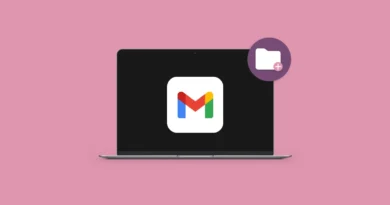What to do with the phone of a deceased person
Not so long ago, Apple did launch the Digital Legacy feature in the iOS update: the option is rather peculiar, but quite logical. This leads to thoughts about whether it is worth transferring your device to your relatives, how to do it correctly? I think you have often thought about what happens to the smartphone of a person who has departed to another world. I myself sometimes think about what will happen to my smartphone after death: don’t think that I’m pumping it up, it’s just that life is such a thing: you never know where you will be tomorrow . I propose to speculate a little about what to do with the phone of the deceased person .
What to do with the number of the deceased
The first thing that worries you when a person is left with a phone is what to do with the number of the deceased ? After all, he will no longer be useful to him, and answering incoming calls and telling the sad news is not very nice and hardly wants to. Of course, you can throw it away or turn off the number altogether , but you can do otherwise.
- The mobile operator cannot find out whether a person is alive or not: the SIM card is active as long as they continue to make calls with it and replenish the account.
- Another thing is if it is inactive from 3 to 6 months (the period may differ for each operator), then it is blocked, and the number is put up for sale. In this case, those who did not know about death may accidentally call a completely different owner.
- If the deceased in the will transferred the ownership of his number to a certain person, then the operator is obliged to re-register it for this person.
- The easiest option: relatives can block the SIM card by providing the operator with a copy of the death certificate and a statement.
Deceased person’s account
It is also curious what happens to the accounts of a deceased person . For example, one scammer was able to temporarily block the account of the head of Instagram, Adam Mosseri, declaring his death through the “Account in memorable status” function. Using it, users inform the company about the death of the account owner.
In some social networks, for example, in Odnoklassniki, the page can be hidden or switched to a special mode when the avatar is black and white with a mourning ribbon. You can also make the account visible only to the friends of the page owner. For this, relatives must write in support and provide a death certificate. The press service reports that less than 20% of users use this function, while the rest prefer to leave an account as a souvenir.
This suggests that the virtual world is beginning to resemble the real one: social networks are cities, and the accounts of the dead are some kind of digital cemeteries . And every year there are more and more such cases. Unfortunately, our legislation does not regulate such digital wills in any way . Probably, this is not necessary: this is helped by the user agreement for services, which provides for various scenarios.
Deceased person’s phone number
And the most important question is what to do with the smartphone of the deceased. You can turn to the ethical side of the issue: a smartphone is a smartphone, you can use it, keep it for yourself, and even sell it.But I think that it is better not to advertise this – hardly anyone will be very happy with such a device . If you are not particularly superstitious, then you can get rid of your smartphone right after the funeral so that your personal item is less reminiscent of the deceased, and your life is a little easier.
The most interesting thing is, is it worth unlocking the deceased’s phone ? It contains passwords for pages, important content and banking applications. By the way, it is better to take care of your own funds in advance by writing a will and indicating who can inherit your funds. If someone from close relatives knows the codes from the cards of the deceased, then you can spend up to 100 thousand rubles, confirming the legality of the expenses by a notary. In addition, if family members have access to a debit card through smart watches or smartphones, then violations can be recorded by the bank only from the treatment of loved ones. It is more dangerous when you use the deceased’s credit card – the debt will have to be repaid to you.
Well, and another important point: trying to unlock the deceased’s smartphone in order to read correspondence, see photos, contacts is a private matter of loved ones, a sort of hand grenade. In principle, it is not worth getting into someone else’s phone from an ethical point of view – this is the personal space of a person, although he has departed into another world – if the deceased already does not care what will happen to his data, then you can find out what concerns living people such as colleagues or friends. I think everything should remain as it is and there is definitely no need to “raise” the correspondence.
